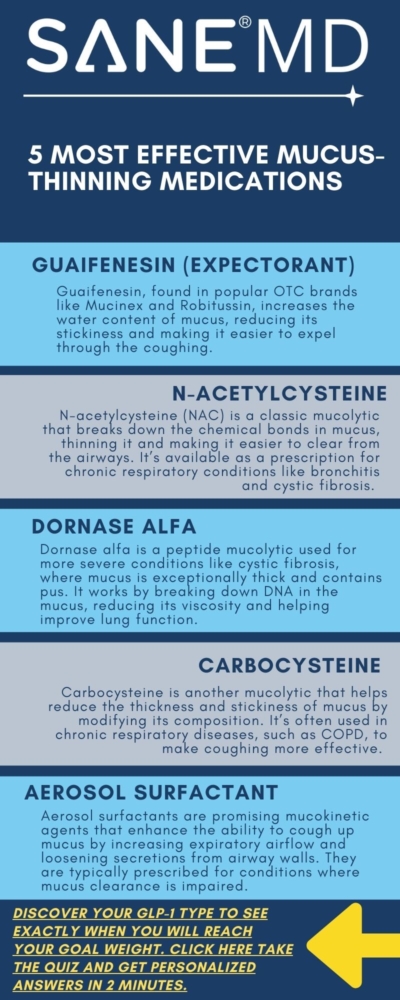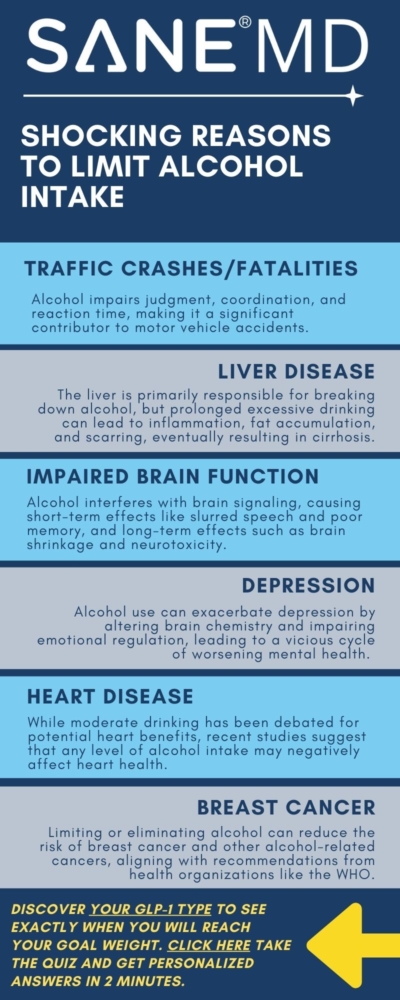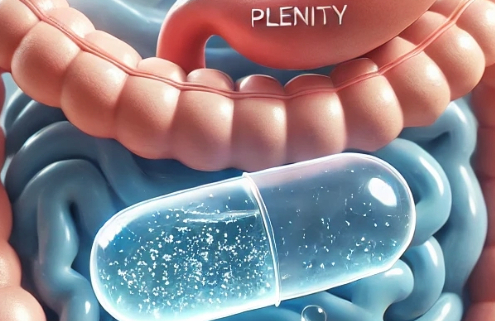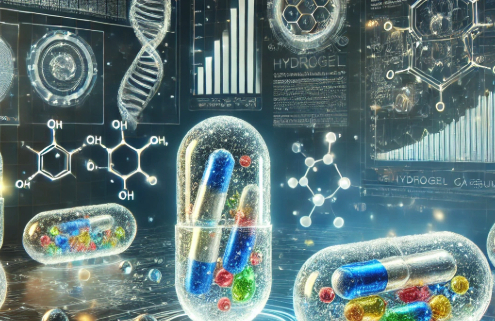4 Most Common Indoor Allergens & Easy Ways to Allergy-Proof Your Home
Do you suffer from year-round allergy symptoms, also called perennial allergies? If so, it may surprise you that indoor allergens could be the culprit. Instead of coming from the great outdoors, your allergies could be triggered by the air you breathe inside your home.
And you’re not alone. Up to 40 percent of the worldwide population is sensitive to foreign proteins in the indoor environment, such as animal dander and mold.
The good news is that there are simple steps you can take to make your home allergy-proof and create a healthy, safe, and comfortable living space.
In this blog post, we’ll explore the causes and symptoms of allergic reactions and delve into the most common indoor allergens. We’ll also provide tips and strategies to help you easily allergy-proof your home and minimize allergy symptoms.
- New Report Says Your Brain Could Be the Key to Reducing Phlegm Over 50
- Doctor's "Leave The Throat Phlegm Behind" Tutorial Goes Viral With People Over 50
- Can You Relieve Throat Phlegm and Coughing In 60 Seconds A Day? This Doctor Says Yes
- How To Banish Phlegm When 50+ (Do This Every Day)
Key Takeaways
- Perennial allergies can be caused by indoor allergens such as pet dander, mold, and dust mites.
- Symptoms of indoor allergies can include sneezing, coughing, itchy eyes, and congestion.
- Regular cleaning and maintenance and proper ventilation can help reduce indoor allergens in your home.
What causes an allergic reaction?
Allergic reactions are triggered by the immune system. When a person allergic to a harmless substance, such as dust, mold, or pet dander, comes into contact with it, the immune system may panic inappropriately. Mistakenly thinking the substance is harmful, it produces antibodies that attack the allergen.
While trying to remove the allergen, the antibodies trigger the release of histamine, a chemical that causes well-known allergy symptoms, such as runny nose, sneezing, and coughing.
The severity of an allergic reaction varies from person to person, with symptoms ranging from minor irritation to a severe, life-threatening condition called anaphylaxis.
Indoor Allergens Symptoms
Indoor allergy symptoms are much like other allergies and include:
- Runny nose
- Sore throat
- Stuffy nose that may itch
- Sneezing
- Coughing
- Wheezing
- Itchy or watery eyes
- Chest tightness
- Skin rashes (hives)
- Congestion
- Fatigue
Common Indoor Allergens and Tips for Avoiding Exposure
If you have indoor allergies, you must improve indoor air quality by using an air purifier, HEPA filter in your HVAC system, and dehumidifier if necessary. These and other tips for avoiding allergen exposure are detailed below.
1. Animal Dander
Pet allergens, primarily proteins found in a pet’s saliva, urine, and dander, can trigger allergic reactions or worsen asthma symptoms in some individuals.
It is a fact that dog allergies are a common cause of asthma and allergic rhinitis, also known as hay fever, all over the world. It affects around 5 to 10 percent of the adult population, as reported in studies (5). Similarly, allergies to cats affect around 7 to 25 percent of the population (6).
Typical allergic responses include:
- Sneezing
- Runny nose
- Congestion
- Puffy, watery or itchy eyes
- Facial pain from nasal congestion
- Frequent throat clearing from excess mucus production
Pet dander can be found in any household, even without pets, due to allergens tracked inside clothing and belongings.
Tips for reducing pet dander include:
- Avoiding contact with dogs or cats, if possible.
- Bathing and brushing your pet regularly, preferably by one who does not have a pet allergy.
- Keeping pets off of your bed, sleeping area, and furniture.
- Vacuuming your carpets and rugs daily with a vacuum equipped with a HEPA filter. The vacuum cleaner must expel all air through the HEPA filter, with none escaping it.
- Using an air purifier
2. Dust Mites
Dust mites belong to the same family of arachnids as spiders and ticks. However, unlike their relatives, they do not bite humans. Instead, they feed on microscopic skin scales and fungi found in things like carpets, bedding, furniture, etc.
Dust mites are a significant cause of allergies worldwide. People allergic to dust mites may experience various symptoms after inhaling dust mite particles (2). About 10 percent of the world’s population is estimated to be allergic to dust mites. The number is much higher in some regions, where up to 90 percent of people with allergic asthma are sensitized to these tiny creatures (3). Exposure to significant levels of dust mites also increases the risk of developing asthma by five times (4).
Tips for reducing dust mites include:
- Using a dehumidifier or air conditioner to reduce humidity
- Vacuuming the carpet frequently
- Covering mattresses and pillows with dust mite covers
- Washing your bedding in hot water frequently, at least once a week
- Eliminating or significantly reducing the amount of carpeting and rugs in your home
- Regularly using an air purifier with a HEPA filter
3. Cockroaches
Cockroaches are prevalent in many parts of the world, especially in warmer regions. Cockroaches are a common source of allergens due to a protein in their bodies, saliva, and waste. Even dead cockroaches can trigger allergic reactions.
Indeed, research has established a strong connection between cockroach allergy, asthma, and allergic rhinitis (hay fever). (6)
Moreover, cockroach allergy is a crucial risk factor for hospital admissions and emergency room visits and a significant cause of asthma-related symptoms (7, 8).
Tips for reducing cockroach infestation include:
- Storing food properly with tight lids
- Keeping a tight lid on trash cans and taking the trash out promptly
- Cleaning house regularly
- Sweeping the kitchen floor regularly and disposing of food crumbs
- Washing the dishes after every meal
- Removing clutter from the floor, which deprives cockroaches of hiding places
- Fixing sources of dampness, such as leaking faucets, roofs, etc.
- Calling an exterminator to get rid of cockroaches.
- Sealing all cracks or holes in the walls, floors, utility pipes, baseboards, and crawl spaces as they are a cockroach’s favorite entry point.
4. Mold Spores
Molds and fungi reproduce and spread through spores released into the air. When these spores are inhaled, they can cause allergic reactions. It is possible to be allergic to both indoor and outdoor molds.
Indoor mold allergies can cause symptoms all year round. You will most likely encounter these spores in areas prone to dampness or water damage, such as the kitchen or bathroom.
Out of over 1 million species of fungi, around 80 have been linked to respiratory allergies (9). When someone is exposed to mold, it can cause allergic rhinitis, commonly known as hay fever. In addition to this, mold allergy considerably increases the risk of developing upper and lower respiratory diseases like asthma (10, 11).
Mold sensitization is a global problem estimated to affect around 3 to 10 percent of the population (12). However, people with asthma are more susceptible to mold allergy, with prevalence estimates reaching as high as 80 percent (13).
Tips for reducing mold spores include:
- Using an air conditioning system or dehumidifier to reduce the humidity in your home
- Installing a HEPA filter in your HVAC system and replacing the filter regularly
- Cleaning up spilled water and fixing plumbing leaks
- Using exhaust fans while cooking or bathing to reduce humidity
- Opening windows and doors to ventilate your home
- Avoiding the ongoing presence of wet laundry, carpets, or bedding. It would be best if you dried it promptly to avoid mold growth.
Indoor Allergens Diagnosis
If you suspect indoor allergies, seeking help from an allergist may significantly improve your quality of life. The first step for an allergist is to perform tests to identify the allergens causing your symptoms. After that, they will work with you to develop a personalized treatment plan to control your symptoms and allow you to live symptom-free.
Summary
It is quite common for people to suffer from indoor allergies, which can cause severe and sometimes incapacitating symptoms. However, by taking small measures to reduce the amount of allergens in your home and working with your healthcare provider to manage your symptoms, you can greatly enhance your quality of life.
Frequently Asked Questions
What are the common indoor allergens?
The most common indoor allergens are dust mites, animal dander, and mold spores,
What are the symptoms of indoor allergies?
The symptoms of indoor allergies are similar to seasonal allergies and include sneezing, runny nose, coughing, wheezing, sore throat, itchy or watery eyes, and congestion.
What in my room can contain indoor allergens?
Bedding, pillows, curtains/drapes, and carpeting can attract and trap allergens like dust mites or pet hair, triggering allergy and asthma symptoms. You should wash your bedding, carpets, and other fabric surfaces regularly to reduce the risk of allergens accumulating. Regularly cleaning your house, including cloth couches, chairs, and drapes, is essential to ensure it remains allergens-free.
Are indoor allergens seasonal?
Indoor allergies can be a constant issue, but they tend to become more noticeable during winter when you spend most of your time indoors. Moreover, because of the cold weather, you tend to shut your doors and windows, which traps allergens inside and exacerbates the problem.
- New Report Says Your Brain Could Be the Key to Reducing Phlegm Over 50
- Doctor's "Leave The Throat Phlegm Behind" Tutorial Goes Viral With People Over 50
- Can You Relieve Throat Phlegm and Coughing In 60 Seconds A Day? This Doctor Says Yes
- How To Banish Phlegm When 50+ (Do This Every Day)
References
1- https://www.aaaai.org/About/News/For-Media/Allergy-Statistics
2- https://pubmed.ncbi.nlm.nih.gov/27184001/
3- https://acaai.org/resources/tools/home-allergy-management
4- https://www.ncbi.nlm.nih.gov/pmc/articles/PMC2975603
5- https://onlinelibrary.wiley.com/doi/10.1111/all.12130
6- https://pubmed.ncbi.nlm.nih.gov/27184001/
7- http://www.eaaci.org/documents/Molecular_Allergology-web.pdf
8- https://www.ncbi.nlm.nih.gov/pmc/articles/PMC2975603
9- https://medcraveonline.com/MOJI/MOJI-02-00045.pdf
10- https://www.mayoclinic.org/diseases-conditions/mold-allergy/symptoms-causes/syc-20351519
11- https://medcraveonline.com/MOJI/MOJI-02-00045.pdf
12- https://www.ncbi.nlm.nih.gov/pmc/articles/PMC4397360/
13- https://www.karger.com/Article/FullText/107578
Best Mucus-Thinning Medications & Home Remedies to Clear Airways Fast
Mucus-thinning medications are popular and profitable products. Consider the statistics for one common category of mucus-thinning medications: expectorants.
Data Bridge Market Research reports that the global expectorant market is expected to reach $26.10 billion by 2030 (1) and explains:
“The global expectorants market is expected to grow significantly during the forecast period. Growing cases of dry cough, which causes dryness in the throat, drive the expectorants market. However, easy availability of expectorants OTC drugs and rising respiratory disease prevalence will boost the expectorants market.” (1)
Of course, excessive phlegm and mucus production, as occurs with upper and lower respiratory infections such as the common cold, sinus infections, bronchitis, and pneumonia, drives the mucus-thinning medication market.
In this detailed blog post, we will provide you with all the necessary information about mucus. This includes the definition of mucus, conditions that can cause excessive mucus production, different types of mucus-thinning medications available both over-the-counter and with a prescription, home remedies, and much more!
- New Report Says Your Brain Could Be the Key to Reducing Phlegm Over 50
- Doctor's "Leave The Throat Phlegm Behind" Tutorial Goes Viral With People Over 50
- Can You Relieve Throat Phlegm and Coughing In 60 Seconds A Day? This Doctor Says Yes
- How To Banish Phlegm When 50+ (Do This Every Day)
Key Takeaways
- Excess mucus production can be irritating, as it leads to frequent swallowing, throat clearing, and coughing. It can also indicate underlying conditions that need to be evaluated and treated.
- Various conditions can cause thick mucus, including the common cold, sinusitis, acid reflux, asthma, allergies, and lung disease.
- Treating excess mucus depends on the cause. OTC and prescription medications can help reduce mucus. Effective at-home remedies can also help to thin mucus. These home remedies include warm salt water gargling, throat cleaner, using a cool mist humidifier, staying hydrated, using essential oils, and elevating your head while sleeping.
What is mucus?
Mucus is a sticky substance produced by the body and is vital in keeping you healthy. Though mucus and phlegm are often used interchangeably, phlegm is a type of mucus your respiratory system produces. Mucus lines the moist surfaces of your body, such as the lungs, sinuses, mouth, stomach, and intestines. It serves as a lubricant to prevent tissues from drying out and as a defense against harmful substances like allergens, viruses, and bacteria.
Any substance you breathe in is caught in the mucus, including bacteria, viruses, and dust, pushed out of the lungs by little hairs called cilia. The mucus and these trapped substances are then transported to the stomach and eventually expelled from the body.
While you may not be aware of the mucus that flows through your body, you will almost definitely notice it when you produce too much of it or when it changes consistency due to an infection. Infections can cause the mucus to become thicker and stickier, leading to inflammation in the mucous membranes that line the nose and airway, which can cause certain airway glands to produce more mucus. This can stimulate even more mucus production, resulting in a runny or clogged nose and post-nasal drip.
Causes of Excess Mucus Production
Conditions that cause your mucous membranes to switch into overdrive and produce excess mucus include:
- Viral and bacterial infections, i.e., the common cold, sinusitis
- Asthma
- Chronic acid reflux (Gastroesophageal Reflux Disease, or GERD)
- Lung diseases, like lung cancer, pneumonia, chronic bronchitis, chronic obstructive pulmonary disease (COPD), emphysema, cystic fibrosis
- Cigarette smoking or exposure to second-hand smoke
- Long-term exposure to air pollution and chemicals
- Allergies
- Specific prescription medications, such as ACE inhibitors for blood pressure
- Dry indoor environment
- Dehydration
- High consumption of diuretic fluids, such as alcohol and caffeinated coffee and tea
Symptoms of Excess Mucus Production
Symptoms of excess mucus production include:
- Frequent throat clearing
- Sore throat
- Cough
- Runny nose
- Hoarseness
- Stuffy nose
- Stomach upset due to swallowed mucus
09Treatments to Thin Mucus and Clear Phlegm
Several OTC and prescription mucus thinners and home remedies can help thin mucus secretions, making it easier to expel from your nose, throat, and lungs.
We’ll start with the best mucus-thinning medications.
Mucus-Thinning Medications
OTC and prescription mucus-thinning medications fall into one of four categories of mucoactive agents: Mucolytics, Expectorants, Mucokinetics, and Mucoregulators. Let’s explore each of them.
Mucolytics
Mucolytics thin out mucus by breaking down chemical bonds to make coughing easier. There are two types of mucolytics, each used for specific circumstances:
- Classic mucolytics, commonly found in over-the-counter and prescription medications, contain active agents such as guaifenesin, N-acetylcysteine, carbocysteine, and erdosteine.
- Peptide mucolytics, conversely, are used for more serious conditions like cystic fibrosis, where the mucus is thicker and often contains pus. These mucolytics contain ingredients like thymosin beta-4 or dornase alfa.
Other Mucus-Thinning Medications: Mucoactive Medications
The other types of mucoactive agents are as follows:
Expectorants: Expectorants increase airway secretions. They achieve this by augmenting the volume of water in the secretions, which reduces their stickiness, making it easier to cough them up. The most common active ingredient in expectorant brands is guaifenesin. Popular brands include Robitussin and Mucinex.
Mucokinetics. Mucokinetic agents improve cough effectiveness by increasing expiratory airflow or unsticking secretions from airway walls. Aerosol surfactant is a promising medication in this class.
Mucoregulators. Mucoregulators suppress goblet cell action to regulate mucus production.
Mucus-Thinning Medications: Formulation and Usage
Mucolytics come in various forms, including tablets, capsules, and syrups that can be taken orally (by mouth). They can also be inhaled in mist through an aerosol inhaler or a nebulizer machine. The dosage varies based on the drug, formulation, and treated condition.
Over-the-counter (OTC) medications should be taken as prescribed, usually two to three times daily.
Common OTC mucolytics include:
- Robitussin DM (guaifenesin): This is an expectorant and cough suppressant that comes in syrup form.
- Mucinex (guaifenesin): It comes in tablet and syrup form.
- Mucolyte (bromhexine): It comes in dissolvable tablets, syrup, and regular table forms.
Prescription mucolytics can manage severe respiratory diseases like cystic fibrosis, either for acute episodes or daily use.
Common prescription mucolytics include:
- Availnex (carbocisteine): Forms available: chewable tablet, tablet, and inhaler primarily used to treat emphysema and cystic fibrosis
- Ectrin (erdosteine): Forms available: tablet, granules, capsule, and powder used mainly to treat chronic bronchitis.
- Mucomyst (N-acetylcysteine): Administered by a nebulizer to treat conditions like cystic fibrosis, COPD, and pneumonia.
- Pulmozyme (dornase alfa): Administered by nebulizer to treat cystic fibrosis
- TB-500 (thymosin beta-4): Administered by nebulizer to treat cystic fibrosis
5 Home Remedies to Thin Mucus and Phlegm
Natural home remedies like those listed below can also help keep mucus thin.
1. Moisten the Air.
Dry air can irritate the nose and throat, leading to the production of more mucus as a lubricant. Placing a cool mist humidifier in the bedroom is a good idea to avoid a sore throat and promote better sleep. This can keep the nose clear and ensure that you breathe comfortably.
If you live in an area with dry air, running a cool mist humidifier throughout the day can be helpful. This is especially true during the winter months. However, it is important to change the water daily and clean the humidifier according to the instructions on the package.
2. Drink plenty of water and other fluids.
To keep mucus thin, it’s essential to keep the body hydrated. With common colds or a sinus infection, it’s recommended to drink extra fluids to help thin mucus and drain the sinuses. Those with seasonal allergies may also benefit from staying hydrated to reduce congestion.
Warm beverages, especially those of the herbal variety, can alleviate breathing difficulties and expel mucus from the body. Green tea, sage tea, and many other herbal teas contain expectorant properties that can help treat respiratory problems and combat the viruses responsible for the symptoms.
Sage is an excellent natural expectorant that can help to soothe your respiratory system. Making sage tea at home is easy and can provide effective relief. Start by steeping a teaspoon of fresh or dried sage in hot water for 10 minutes. Once the tea has been brewed, strain it and drink it multiple times daily for the best results.
Warm or hot herbal teas or other liquids can quickly relieve sore throat discomfort and reduce coughing episodes.
3. Gargle with warm salt water.
If you’re experiencing phlegm in the back of your throat or a sore throat, gargling warm salt water may help alleviate these symptoms. To effectively gargle salt water, follow these simple steps:
- Mix 1/2 to 3/4 teaspoon of salt with a cup of warm water. Warm water is preferable because it dissolves the salt more quickly. It’s also recommended to use filtered or bottled water to avoid any unpleasant taste from chlorine.
- Take a sip of the mixture and tilt your head back slightly. Let the water wash into your throat without swallowing it.
- Gargle the water by blowing air up from your lungs for 30 to 60 seconds before spitting it out.
- Repeat the process as often as necessary.
This method is a safe and effective way to relieve symptoms associated with throat irritation.
4. Use Essential Oils
Several essential oils act as expectorants to help expel mucus, including:
- Eucalyptus oil
- Peppermint oil
- Rosemary oil
- Cedarwood oil
- Pine oil
There are various ways to utilize your essential oils for their expectorant properties. The simplest way is to mix them with a carrier oil and apply the blend to your chest by massaging it gently.
One of the most effective ways to alleviate congestion is to fill a sink with hot water and add 5 or 6 drops of your favorite essential oil. Cover your head and shoulders with a towel and lean over the sink. Inhale the steam for around 5 minutes or as long as you can tolerate. Be careful not to burn your skin in the hot water or steam.
5. Elevate your head when sleeping
Sleeping with your head elevated has been shown to have many health benefits, and it’s particularly effective at reducing excess phlegm in the lungs and preventing too much mucus from accumulating and dripping down the back of your throat, a condition called postnatal drip.
You can put a foam wedge between your mattress and box spring to elevate your head or stack a few pillows beneath your head and upper torso. Alternatively, you can use an adjustable bed base, which is easier and more convenient than the other options.
When to See a Doctor
Experiencing excess or thick phlegm occasionally is generally not a cause for concern. It is normal to notice it in the morning as it accumulates and dries overnight. You may also see more phlegm when sick, have seasonal allergies, or are dehydrated.
However, you should visit your doctor if you experience uncomfortable phlegm regularly. Excess phlegm production can signal more serious health conditions, such as asthma, allergies, acid reflux, and chronic bronchitis.
Summary
It is important to keep in mind that our body produces mucus consistently. When we experience excess mucus, it usually indicates that our body is fighting against a cold, sinus infection, allergies, or other conditions.
There are numerous medicines and remedies tailored to different severity levels and preferences that can be helpful. Over-the-counter (OTC) medications and at-home remedies like using a cool mist humidifier and staying hydrated are great places to start.
Severe cases of excess mucus can usually be treated with prescribed medication.
If you consistently experience thick mucus for a few weeks, make an appointment with your doctor for an evaluation and treatment options.
Frequently Asked Questions
What is the best medicine for mucus thinning?
Guaifenesin is a medication that helps to loosen and clear mucus or phlegm from the chest when you are suffering from congestion caused by a cold or flu. It works by thinning the mucus or phlegm in the lungs, making it easier to cough up and clear. However, studies have shown that guaifenesin is ineffective in clearing mucus or phlegm in lung diseases.
What thins mucus naturally?
Drinking fluids like juice, clear broths, and soup can help loosen congestion by aiding mucus movement. Warm liquids are particularly effective in thinning mucus. Another mucus-thinning option is to use a cool mist humidifier while you sleep.
How long does it take to get rid of thick mucus?
If you are experiencing allergies, asthma, or any other condition that leads to excessive mucus production, it is crucial to seek medical attention. However, in cases where phlegm results from a viral infection like a common cold, it typically improves within seven to ten days.
What is a natural alternative to Mucinex?
Peppermint contains menthol, which can help thin mucus and loosen phlegm. Peppermint tea is widely available for purchase online or in stores and is considered a safe drink to consume.
- New Report Says Your Brain Could Be the Key to Reducing Phlegm Over 50
- Doctor's "Leave The Throat Phlegm Behind" Tutorial Goes Viral With People Over 50
- Can You Relieve Throat Phlegm and Coughing In 60 Seconds A Day? This Doctor Says Yes
- How To Banish Phlegm When 50+ (Do This Every Day)
References
1- https://www.databridgemarketresearch.com/reports/global-expectorants-market
6 Shocking Reasons to Limit Alcohol Intake for Better Health in 2024
Are there reasons you should limit alcohol intake? The answer is a resounding YES!!!
Alcohol consumption can threaten your health and safety, regardless of the amount consumed. Recent studies suggest that limiting alcohol intake is essential to avoiding these risks. This blog post will delve into the immediate and long-term physical and mental health risks of consuming alcohol and define moderate and heavy drinking to help you limit alcohol intake.
- Any amount of alcohol consumption can put your health and safety at risk
- Moderate drinking means having one drink per day for women and two drinks per day for men, and heavy drinking is defined as consuming more than eight drinks per week for women and 15 drinks per week for men
- If you limit alcohol intake, you can reduce the risk of developing health problems such as liver disease, depression, and cancer. You can also reduce your risk of causing traffic accidents and fatalities.
Why Everyone Should Limit Alcohol Intake
Alcohol’s impact on your body begins as soon as you take your first sip, but you may not immediately feel its effects.
Sure, you may feel the pleasurable warm buzz after sipping one alcoholic beverage or experience the dreaded hangover the following day after a night of binge drinking. But you probably don’t worry much about them because they are transitory physical and mental symptoms. They go away quickly, and you feel like your old self again.
However, any amount of alcohol consumption can potentially lead to unwanted health consequences, even if you don’t drink often. While people who binge or drink heavily may experience more immediate health effects, moderate drinking can also pose risks. Therefore, it’s essential to be mindful of the potential impact alcohol can have on your health and to limit alcohol intake.
Ultimate Risk of Alcohol Use: Death
Alcohol abuse is a serious issue that can have fatal consequences, as confirmed by recent research.
A study published in late 2022 revealed that excessive alcohol consumption led to approximately 140,000 deaths annually in the United States between 2015 and 2019 (1). While about 40% of these deaths were due to immediate causes like vehicular accidents, alcohol poisoning, and homicides, most were caused by chronic conditions associated with excessive alcohol use, including heart disease, liver disease, and cancer.
But what if you don’t drink alcohol excessively? What if moderate alcohol consumption is your thing?
When experts discuss the serious health consequences associated with excessive alcohol consumption, many people assume that it only applies to those who suffer from an alcohol use disorder. However, even moderate drinking can pose health risks. Alcohol can harm one’s health, even at very low levels, and even if you limit alcohol intake.
Risks of Drinking Alcohol
Chronic alcohol use is associated with numerous short- and long-term mental and physical health problems, and it can also shorten your life expectancy in other ways. Here are 6 of the most common and severe risks that can occur if you fail to limit alcohol intake.
1. Traffic Crashes and Fatalities
Despite strict drunk driving laws, many people risk getting behind the wheel of a car after drinking a few drinks.
According to the 2020 National Survey of Drug Use and Health (NSDUH), an estimated 18.5 million U.S. residents aged 16 years and older drove under the influence of alcohol in the past year (2).
Meanwhile, data from the Behavioral Risk Factor Surveillance System revealed that in 2020, 1.2% of adults drove after consuming excessive amounts of alcohol in the past 30 days, resulting in an estimated 127 million instances of alcohol-impaired driving among U.S. adults (3).
Drunk driving doesn’t come without significant health and safety risks.
The National Highway Traffic Safety Administration (NHTSA) reports, “In 2021, there were 13,384 fatalities in motor vehicle traffic crashes in which at least one driver was alcohol-impaired. This represented 31 percent of all traffic fatalities in the United States for the year.” (4)
2. Liver Disease
Liver disease is a prevalent issue due to alcoholism and alcohol abuse. This is because the liver primarily breaks down and metabolizes alcohol.
Prolonged alcohol consumption can lead to inflammation and swelling of the liver, causing significant damage over time. Eventually, this damage can result in scarring, commonly known as cirrhosis. Cirrhosis marks the final stage of liver disease.
The three stages of alcohol-related liver disease are as follows:
- Alcoholic fatty liver disease is characterized by the gradual accumulation of fat around the liver. This condition can be reversed by giving up alcohol consumption. As many as 20% of heavy drinkers develop this condition (5).
- Acute alcoholic hepatitis is where the liver becomes inflamed (swollen). In this second stage, the severity of liver damage determines the outcome. Treatment can fix the damage, but liver failure is possible in severe cases. As many as 35% of alcoholics develop this second stage (6).
- Alcoholic cirrhosis is when liver scarring occurs from many years of chronic alcohol abuse and alcoholism. (The scarring comes from the liver trying to repair itself from alcohol damage.) As there is no way to reverse this scarring, liver failure is the likely outcome. It must be noted that alcohol is not the only cause of cirrhosis. Many types of liver disease can cause this scarring. An estimated 10% to 25% of alcoholics develop alcoholic cirrhosis (5).
3. Impaired Brain Function
Alcohol significantly impairs the structures of the brain. It hinders the chemical signals between neurons, leading to the familiar immediate symptoms of intoxication, like slurred speech, loss of coordination, poor memory, impulsive behavior, and impaired reflexes (7, 8)
Long-term heavy drinking causes the brain to adapt to the blocked signals by reacting more strongly to certain neurotransmitters. Even after the alcohol leaves the system, the brain still overreacts to these neurotransmitters, resulting in severe and potentially dangerous withdrawal symptoms that can harm brain cells (7, 8, 9). Drinking heavily and then suddenly stopping makes this harm worse (10).
Alcohol has several detrimental effects on the brain. One way is through neurotoxicity, which happens when neurons become overactive due to neurotransmitters, leading to eventual “burnout.” As neurons form the pathways between different parts of the brain, their burning out can cause a noticeable decrease in the speed of these pathways’ reactions.
Heavy alcohol use can damage not only the pathways in the brain but also the brain matter itself. People who are dependent on alcohol often experience a condition called “brain shrinkage.” (11) This condition leads to a reduction in both gray and white matter over time.
Alcohol dependence is a significant risk factor for developing Alzheimer’s disease, particularly in women (12). Alcohol-related brain damage is estimated to contribute to 10% of cases of early-onset dementia (13).
Although some brain damage may be reversible following a prolonged period of sobriety, chronic and excessive drinking can permanently impair brain function (14).
4. Depression
Severe depression, or major depression, is a prevalent mental disorder in the United States. According to research, approximately 21 million adults in the U.S. experienced at least one major depressive episode in 2021 (15). For some people, major depression can cause significant impairments that disrupt or restrict their ability to perform critical daily tasks. Major depression is also the leading risk factor for suicide.
Alcohol consumption and depression have a close yet complex relationship. While both conditions can increase the risk of the other, alcohol abuse may be the more influential factor (16, 17).
Some individuals with anxiety and depression turn to alcohol to reduce stress and improve their mood. While this may provide temporary relief, it can worsen their mental health and trigger a harmful cycle (18).
In fact, for some people, heavy drinking is a significant contributor to depression. Therefore, treating the underlying alcohol abuse can significantly improve mental health (19).
5. Heart Disease
Heart disease, a condition that affects the heart, is the leading killer of U.S. adults.
Studies have suggested that moderate alcohol consumption may be associated with a lower risk of dying from heart disease. However, recent studies indicate that consuming alcohol, regardless of the quantity, may negatively affect one’s health.
It is a medically established fact that excessive alcohol consumption is associated with several adverse health outcomes, including heart conditions. Drinking too much can lead to high blood pressure, heart failure, stroke, and cardiomyopathy, a disease affecting the heart muscle.
This is particularly true with excessive drinking behaviors, such as binge drinking and heavy drinking. Thus, drinking too much alcohol can increase heart disease and stroke risk. But, thankfully, if you limit alcohol intake, you may be able to reduce these risks.
6. Breast Cancer
Breast cancer is a type of cancer that develops in the cells of the breasts. It is the second most common cancer diagnosed in women in the United States, after skin cancer. Roughly one out of every eight women, or 13% of the female population, will be diagnosed with breast cancer at some point in their lifetime (20). Although breast cancer can also occur in men, it is much more prevalent in women.
The World Health Organization states that alcohol consumption is among the most significant breast cancer risk factors (21).
Alcohol consumption is a significant risk factor for several types of cancer, including the following:
- Esophageal cancer
- Mouth cancer
- Throat cancer
- Liver cancer
- Larynx (voice box) cancer
- Colorectum cancer
The WHO further states that “There is no safe level of alcohol consumption. The risk of breast cancer increases with each unit of alcohol consumed per day.” (21)
If you want to reduce your risk of breast cancer, you should limit alcohol intake, replacing it with other beverages.
Short-Term Effects of Alcohol Consumption
The short-term effects of drinking alcohol can include:
- Dizziness
- Slurred speech
- Mood changes
- Giddiness
- Nausea or vomiting
- Drowsiness
- Loss of coordination
- Inhibition
- Diarrhea
- Headache
- Gaps in memory (blackout)
- Problems focusing
Summary
Drinking alcohol in moderation is generally considered safe for most people, but newer research has indicated that drinking any amount of alcohol can harm health. Excessive and long-term use of alcohol can lead to severe mental and physical health issues.
Several factors affect the metabolism of alcohol, and its effects may vary from person to person, making it difficult to determine the recommended intake.
According to the American Dietary Guidelines, women should limit alcohol intake to one drink per day, while men should not consume more than two drinks per day. However, certain individuals, such as pregnant women and those with specific medical conditions, should avoid alcohol altogether.
Frequently Asked Questions
How much alcohol is ok per day?
To minimize the risks associated with the consumption of alcohol, the 2020-2025 Dietary Guidelines for Americans suggest that individuals of legal drinking age may opt to refrain from drinking or limit their intake to a maximum of 2 drinks per day for men and one drink per day for women on the days when alcohol is consumed. It is crucial to follow these guidelines to maintain a healthy lifestyle.
It is important to note that if you are pregnant or planning to become pregnant, it is highly recommended that you avoid consuming alcohol. Additionally, individuals who have specific medical conditions such as liver disease or diabetes, those who are taking antidepressants or other medications, current and recovering alcoholics, and individuals who are not of legal drinking age should also refrain from drinking alcohol.
How much alcohol is too much per week?
For women, heavy drinking is defined as consuming eight or more drinks per week. For men, heavy drinking is defined as consuming 15 or more drinks per week. Any alcohol use during pregnancy is considered harmful.
What is the 20-minute rule for alcohol?
The 20-minute rule for alcohol consumption suggests waiting 20 minutes after finishing one drink before starting another. This rule will help prevent you from drinking too many alcoholic beverages.
What is substance use disorder?
Substance use disorder is a pattern of substance (drug) use that leads to significant problems or distress. These problems may include missing work or school or using substances in dangerous situations like driving a car. Alcohol is the most commonly used legal drug associated with substance use disorder.
1- https://jamanetwork.com/journals/jamanetworkopen/fullarticle/2798004
2- https://crashstats.nhtsa.dot.gov/Api/Public/ViewPublication/813450
3- https://www.cdc.gov/brfss/index.html
4- https://crashstats.nhtsa.dot.gov/Api/Public/ViewPublication/813450
5- https://www.upmc.com/services/liver-cancer/liver/alcohol-liver
6- https://liverfoundation.org/resource-center/videos/alcohol-related-liver-disease/
7- https://pubmed.ncbi.nlm.nih.gov/20617045/
8- https://pubmed.ncbi.nlm.nih.gov/15303622/
9- https://pubmed.ncbi.nlm.nih.gov/20729980/
10- https://pubmed.ncbi.nlm.nih.gov/23347747/
11- https://pubmed.ncbi.nlm.nih.gov/22868938/
12- https://www.ncbi.nlm.nih.gov/books/NBK83244/
13- https://www.ncbi.nlm.nih.gov/pmc/articles/PMC3580328/
14- https://pubmed.ncbi.nlm.nih.gov/16156047/
15- https://www.nimh.nih.gov/health/statistics/major-depression
16- https://pubmed.ncbi.nlm.nih.gov/21382111/
17- https://pubmed.ncbi.nlm.nih.gov/19255375/
18- https://pubmed.ncbi.nlm.nih.gov/19586139/





















